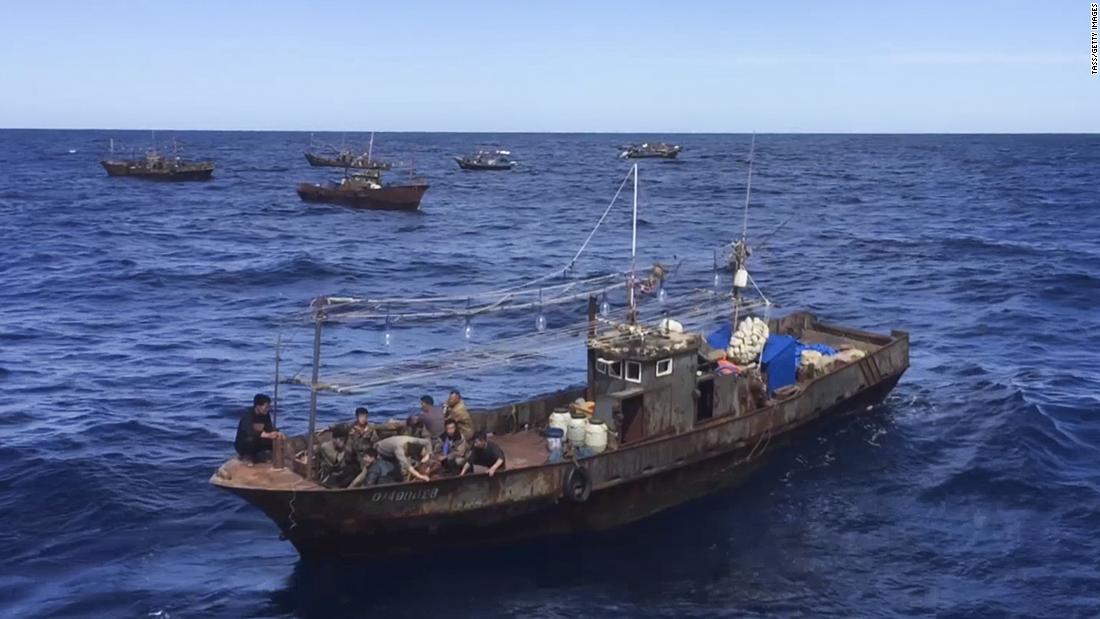A survey by the non-profit organization Global Fishing Watch found that the total number of days North Korean vessels spent fishing for squid in Russian waters fell by 95%, from 146,800 to 6,600. Squid fishing in North Korea’s own territorial waters has also declined sharply.
Global Fishing Watch used satellite imagery and other marine monitoring technologies to track the number of squid fishing vessels during the May to November fishing season. Squid fishing is among the easiest operations to track from a distance because it is usually done at night with powerful lighting equipment.
Squid is popular throughout Northeast Asia and rising demand in recent years has threatened the sustainability of squid stocks already declining in the region, according to Global Fishing Watch. In North Korea, squid is fermented, preserved, grilled, fried or dried and served as a snack.
Jaeyoon Park, a senior data scientist at Global Fishing Watch, said the unprecedented decline appears to be due to the tight entry and exit controls that North Korean leader Kim Jong Un has implemented to keep Covid-19 out of the country.
Experts believe Kim closed North Korea’s borders last year and severed the last of his few ties to the outside world because he knows that Pyongyang’s decrepit health infrastructure would be overwhelmed by a coronavirus outbreak.
North Korea says it has not hired any cases of Covid-19, a claim that most experts consider to be propaganda. But the country appears to have been spared a great wave of infections, in part thanks to strict anti-epidemic measures, controls on the movement of people and border blocking.
“We can safely say that there is a national shortage of several important types of food,” he said.
Fishing away from home
North Korean fishermen often operate illegally outside the country’s own waters due to overcrowding.
Global Fishing Watch park said squid fishing in the territorial waters of Russia and North Korea fell dramatically in 2020. During the peak of the season, from September to November, Global Fishing Watch found 50% fewer vessels of Chinese origin operating in North Korean waters than before. at the same time in previous years.
The North Korean squid fishing boats, however, did not take advantage. There has not been a corresponding increase in North Korea’s squid fishing in the country’s own territorial waters, so it is likely that a large amount of North Korea’s squid supply “disappeared completely by 2020,” Park said.
